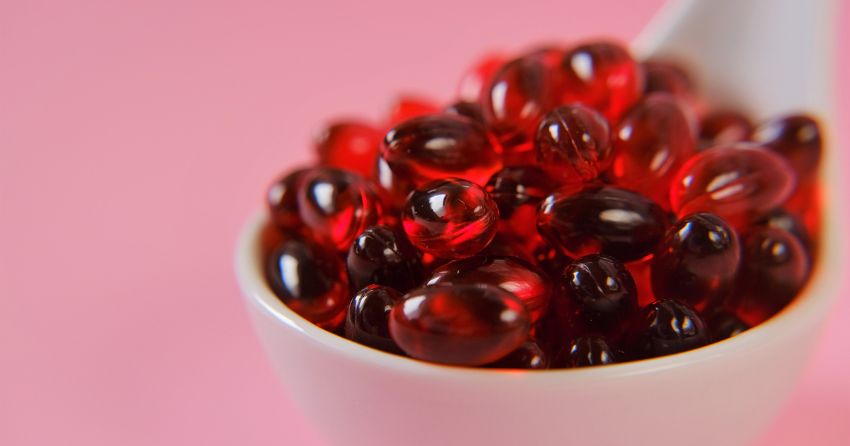Krill Oil Protects “Reward” Neurons From Age-Related Degeneration

Krill oil has shown neuroprotective properties in cells and rodent models, but studies are lacking. Researchers from the University of Oslo show krill oil protects neurons from age-related degeneration. In this study, krill oil improved cognition and behavior in a model of brain aging. The findings suggest krill oil supplements may be a viable strategy to support healthy brain aging.
Going In for the Krill
Marine oils' potential to improve health has been well investigated. But the molecular mechanisms underlying the benefits of krill oil for health have yet to be fully understood. There has yet to be any research on the general potential of krill oil as a nutraceutical that fights aging. Eicosapentaenoic acid (EPA) and docosahexaenoic acid (DHA) are two long-chain omega-3 fatty acids found abundant in extracts from the Antarctic krill species Euphausia superba (DHA).
In contrast to fish oil, where they are only attached to triacylglycerol, EPA/DHA in krill oil is mostly bound to phospholipids. These fatty acids play a variety of activities in the brain, including maintaining brain structure and function and acting as fundamental building blocks for healthy cell membranes. Astaxanthin—a strong antioxidant and anti-inflammatory substance—is a naturally occurring element of krill oil. In a mouse model of brain aging, astaxanthin preserved young mice but not old mice's dopaminergic neurons, which are related to mood and movement and are critical for brain aging. The vital ingredient choline, a precursor to the necessary chemical for nerve communication known as acetylcholine, is also a dietary component of krill oil.
Thus, krill oil may be a preferred nutraceutical to improve brain health since it combines a number of substances with neuroprotective qualities (choline, EPA/DHA, and astaxanthin), and it has exceptional absorption. Short-term supplementation studies have demonstrated that EPA/DHA possesses anti-inflammatory and anti-oxidative qualities that enhance motor function and some cognitive properties, which lends credence to this claim.

WD-40 for the Aging Brain
A Norwegian research team demonstrates that krill oil improves dopamine-dependent behavior and cognition in roundworm brain aging models and protects dopaminergic neurons from age-related degeneration. They show that krill oil supports healthy aging by inhibiting several aging-related processes. Krill oil specifically prevents the buildup of oxidative DNA damage, mitigates the loss of mitochondrial membrane potential and function, prevents aging-related arrest in cell growth and replication (senescence), and lessens the harmful molecule aggregation in the brains of elderly animals. The researchers also showed that krill oil alters global gene expression programs in midlife and in elderly mice to lessen several age-related symptoms. This has a surprising protective effect on the survival of dopaminergic neurons in aging animals.
The control of the gene SKN-1, a master regulator of oxidative stress responses in roundworms, illustrates how krill oil's overall anti-inflammatory effects are mirrored in the functional enrichment of immune and stress response pathways. In krill oil-treated mice, the age-related gradual elevation of SKN-1 activity and SKN-1-regulated genes was largely abolished, possibly indicating the strong antioxidant potential of astaxanthin. Functional evidence demonstrating that krill oil enhances mitochondrial activity was also compatible with the downregulation of genes regulated by SKN-1. “Our data suggest that SKN-1 [activity] is tuned to a lower level in krill oil-treated animals, perhaps reflecting a coordinated response to avoid [harmful levels of oxidative stress],” said the authors.
Consistently, krill oil-regulated genes were functionally enriched for various metabolic functions. This is consistent with a prior metabolic examination of roundworms treated with krill oil. However, the roundworms in that study came from a different source. In our analysis, enrichment for biological processes related to protein metabolism and amino acid metabolism is consistent with elevated amounts of amino acids and their derivatives (e.g., L-proline and L-phenylalanine).
Interestingly, the data also imply that krill oil might have more focused impacts on nerve cell transmission. For instance, CEH-28 controls the structure of synapses and the development of neurons, especially those critical for movement. The choline in krill oil is likely connected to the upregulation of genes sensitive to CEH-28. Genes controlled by the transcription factor CEBP-1 were increased one day after treatment with krill oil. It has been demonstrated that CEBP-1 in roundworms activates a gene activity program that guards against axon degeneration. The researchers from the University of Oslo also discovered that krill oil modifies gene activation procedures to prevent age-related neurodegeneration.
The dramatic suppression of age-related changes in cellular indicators of aging, such as age-related loss of mitochondrial membrane potential and function, by krill oil in both roundworms and mammalian cells demonstrated the functional importance of these changes in gene expression. Oxidative stress and senescence were also prevented. Together, these findings provide compelling evidence that krill oil delays aging to provide neuroprotection.
References:
SenGupta T, Lefol Y, Lirussi L, et al. Krill oil protects dopaminergic neurons from age-related degeneration through temporal transcriptome rewiring and suppression of several hallmarks of aging. Aging (Albany NY). 2022;14(21):8661-8687. doi:10.18632/aging.204375







